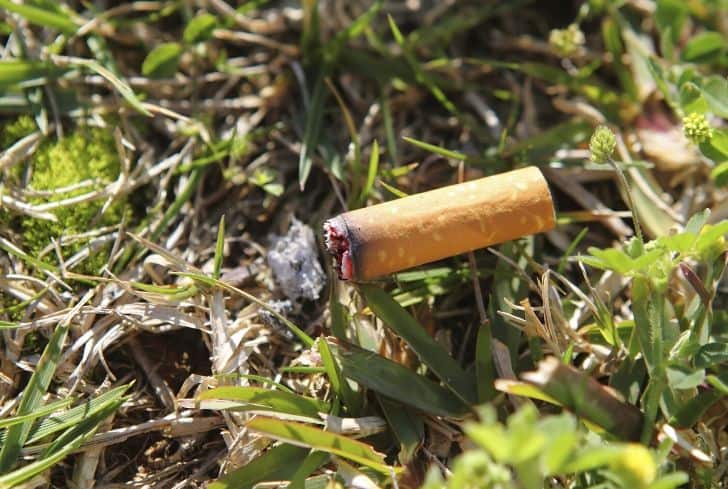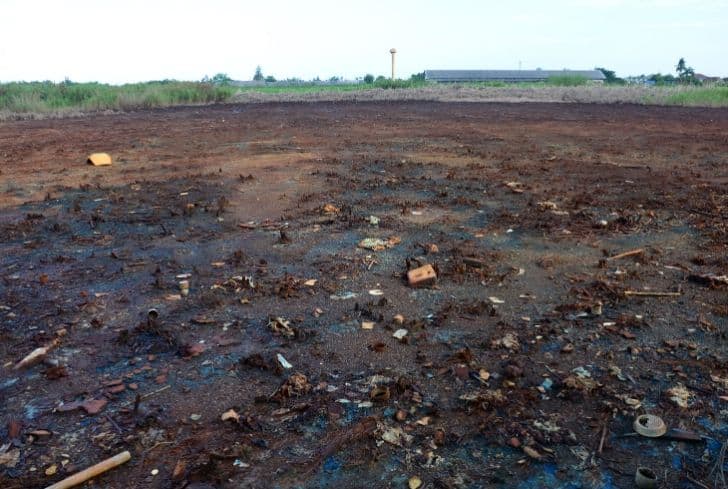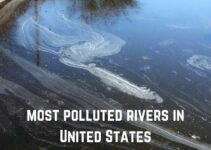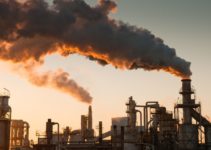With the rise of concrete buildings and roads, one part of the Earth that we rarely see is the soil. It has many different names, such as dirt, mud, and ground. However, it is definitely very important to us. The plants that feed us grow in soil, and keeping it healthy is essential to maintaining a beautiful planet.
However, like all other forms of nature, the soil also suffers from pollution. Soil pollution is a common thing these days, and it happens due to the presence of man-made elements.
What is Soil Pollution?
Soil pollution is when the soil is contaminated by different pollutants like toxic chemicals from man-made products or even from wind or precipitation, which are natural pollutants. The chemicals within soil cause reactions with other chemicals that go within it, which could lead to soil contamination or pollution.
If the chemical placed into the soil is unnatural and harmful, then the soil will be polluted or contaminated, which could cause many environmental risks. On the other hand, even if the contaminant is a natural component of the soil, it could still cause soil pollution if the concentration is already too high.
According to Environmental Pollution Centers, soil pollution is,
“The presence of toxic chemicals (pollutants or contaminants) in soil, in high enough concentrations to pose a risk to human health and/or the ecosystem. In the case of contaminants which occur naturally in soil, even when their levels are not high enough to pose a risk, soil pollution is still said to occur if the levels of the contaminants in soil exceed the levels that should naturally be present.”
The main reason why the soil becomes contaminated is the presence of man-made waste. The waste produced by nature itself, such as dead plants, carcasses of animals, and rotten fruits and vegetables, only adds to the fertility of the soil. However, our waste products are full of chemicals not originally found in nature leading to soil pollution.
Main Causes of Soil Pollution
Soil pollution is a complex phenomenon, and it can be triggered by various things and activities, from littering cigarette butts to excess use of chemical fertilizers. Every cause is linked with another. It is quite difficult to pinpoint one particular cause. However, the leading causes are listed below.
1. Industrial Activity
Industrial activity has been the biggest contributor to the problem in the last century, especially since mining and manufacturing have increased. Most industries are dependent on extracting minerals from the earth.
Whether it is iron ore or coal, the by-products are contaminated and not disposed off in a manner that can be considered safe. As a result, industrial waste lingers on the soil surface for a long time, making it unsuitable for use.
2. Agricultural Activities
The utilization of chemicals has gone up tremendously since technology has provided us with modern pesticides and fertilizers. They are full of chemicals not produced in nature and cannot be broken down. As a result, they seep into the ground after mixing with water and slowly reduce the soil fertility.

Other chemicals damage the composition of the soil and make it more erodible by water and air. Plants absorb many of these pesticides, and when they decompose, they cause soil pollution since they become a part of the land.
3. Waste Disposal
Finally, a growing concern is how we dispose of our waste. While industrial waste is sure to cause contamination, there is another way in which we are adding to the pollution. Every person excretes a certain amount of personal waste in the form of urine and faeces.
While much of it moves into the sewer system, a large amount is dumped directly into landfills in the form of diapers. Even the sewer system ends at the landfill, where the biological waste pollutes the soil and water. This is because our bodies are full of toxins and chemicals that are now seeping into the land and causing soil pollution.
4. Accidental Oil Spills
Oil leaks can happen during the storage and transport of chemicals. This can be seen mostly in fuel stations. The chemicals in the fuel deteriorate the soil quality and make it unsuitable for cultivation. These chemicals can enter the groundwater through the soil, making the water undrinkable.

5. Acid Rain
Acid rain is caused when pollutants present in the air mix up with the rain and fall back on the ground. The polluted water could dissolve away some of the essential nutrients found in the soil and change the structure of the soil.
Devastating Effects of Soil Pollution
Soil influences almost all aspects of our daily lives, and we humans sometimes fail to understand this. Polluted soil means stunted crops or even a toxic underground water table. Some major effects of soil pollution are listed below.
1. Effect on Human Health
Considering how soil is the reason we can sustain ourselves, its contamination has major consequences to our health. Crops and plants grown on polluted soil absorb much of the pollution and then pass it on to us. This could explain the sudden surge in small and terminal illnesses.
Long-term exposure to such soil can affect the body’s genetic makeup, causing congenital illnesses and chronic health problems that cannot be cured easily. In fact, it can cause sickness to the livestock to a considerable extent and cause food poisoning over a long period of time. Soil pollution can even lead to widespread famines if the plants cannot grow in it.
2. Effect on Growth of Plants
The ecological balance of any system is affected due to the widespread contamination of the soil. Most plants cannot adapt when the soil’s chemistry changes radically. Fungi and bacteria found in the soil that bind it together begin to decline, which creates an additional problem of soil erosion.
The fertility of the soil slowly diminishes, making land unsuitable for agriculture and any local vegetation to survive. Soil pollution causes large tracts of land to become hazardous to health. Unlike deserts, suitable for their native vegetation, such land cannot support most life forms.
3. Decreased Soil Fertility
The toxic chemicals present in the soil can decrease soil fertility and therefore decrease the soil yield. The contaminated soil is then used to produce fruits and vegetables, which lack quality nutrients and may contain poisonous substances that cause serious health problems to people consuming them.
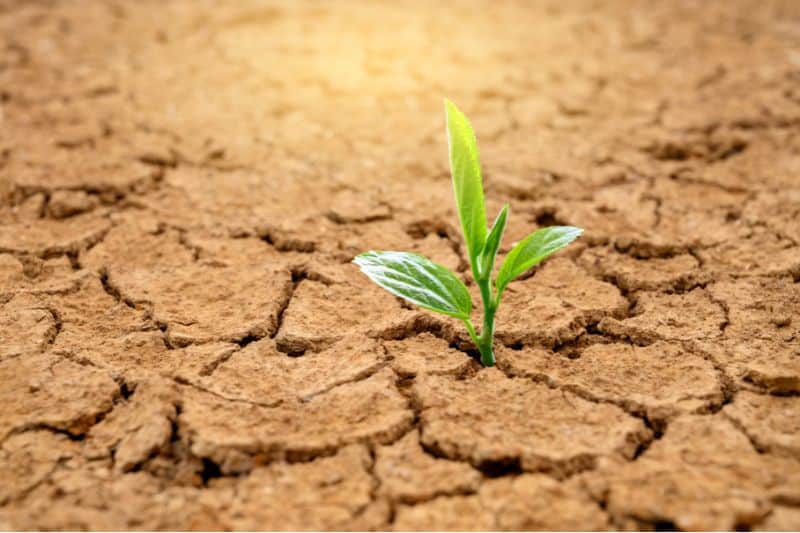
4. Toxic Dust
The emission of toxic and foul gases from landfills pollutes the environment and causes serious effects on the health of some people. Besides, the unpleasant smell causes inconvenience to other people.
5. Changes in Soil Structure
The death of many soil organisms (e.g., earthworms) in the soil can lead to alteration in soil structure. It could also force other predators to move to other places in search of food.
Several ways have been suggested to curb the current rate of pollution. Such attempts at cleaning up the environment require plenty of time and resources to be pitched in.
Industries have been given regulations for the disposal of hazardous waste, aiming to minimise the area that becomes polluted.
Organic farming methods are being supported, which do not use chemical-laden pesticides and fertilizers. Using plants that can remove pollutants from the soil is also encouraged. However, the road ahead is quite long, and soil pollution prevention will take many more years.
6. Poisoning of the Underground Water Table
Soil pollution also leads to the poisoning of the underground water table. Since this water is stored beneath the soil layers, the toxins in the soil could easily percolate slowly and steadily into the water table.
We must also remember that this water is available for consumption and usage through wells and tube wells. When such toxic water is consumed or used over a period of time, it causes a lot of ill effects on our health. The prolonged consumption of this toxic underground water causes diseases like arsenic poisoning, food poisoning, and others. These diseases could also prove to be quite fatal.
Possible Solutions to Soil Pollution
Soil pollution is a complex problem that ought to be solved. We all must realize how important soil is to us. This will help us cab the soil pollution problem in a better way. It is a complex problem; thus, it requires everyone, from individuals to the government, to work in complete unison.
Listed below are a few things that could help in reducing soil pollution.
1. Reduced Use of Chemical Fertilizers
Chemical fertilizers overuse can result in soil acidification and crust and do more harm than good. While proper amounts could enhance the fertility of the soil, an excess of it actually poisons the soil. When they are overused, they cause soil pollution in the following ways;
- It could mess with the pH levels of the soil.
- Destroys the good microorganisms in the soil.
- Causes water pollution
Thus, using chemical fertilizers is like a double-edged sword.
2. Reforestation and Afforestation Should be Promoted
One of the major causes of soil pollution is soil erosion, which is caused due to deforestation. It is natural that, with an ever-growing population, humankind needs more and more space to expand its civilization. Often, it is achieved at the cost of soil health. To prevent this from happening, reforestation of a deforested area should be promoted.
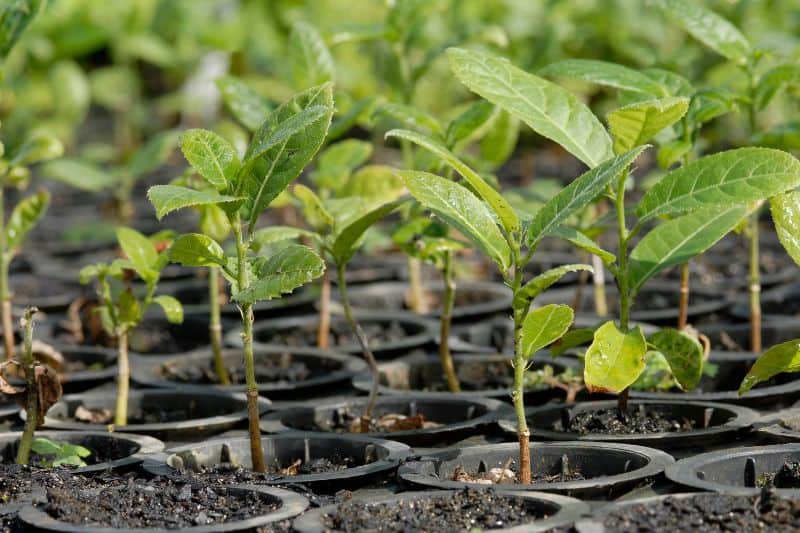
Also, afforestation should be promoted and encouraged in the barren lands. The roots of the plants bind the soil particles together and even capture good microorganisms in the soil. It also ensures the maintenance of the underground water table.
3. Recycle and Reuse Products
These steps not only reduce waste generation but also ensure that soil pollution is reduced. Currently, plastics form a significant portion of the generated waste. More often than not, this waste is buried in landfills.
In these landfills, plastics and other materials decompose slowly and release toxic materials into the soil. These toxic substances are very harmful to the health of the soil and are a major source of soil pollution.
Reusing and recycling things would ensure less waste is dumped in these landfills, reducing soil pollution.
4. Get the Locals Involved
A problem like soil pollution requires every individual’s involvement. Things will work out better only when we realise our responsibility at the individual level. Awareness programs could be designed so that people understand soil pollution better. If people are aware, they will help even subconsciously.
5. Promote the Use of Natural Manure
Natural manure is one of the best sources of nutrients for the soil. It is harmless and completely organic. It adds essential nutrients to the soil and restores the health of the soil. It has no harmful by-products that could harm the soil or the environment in any way.
